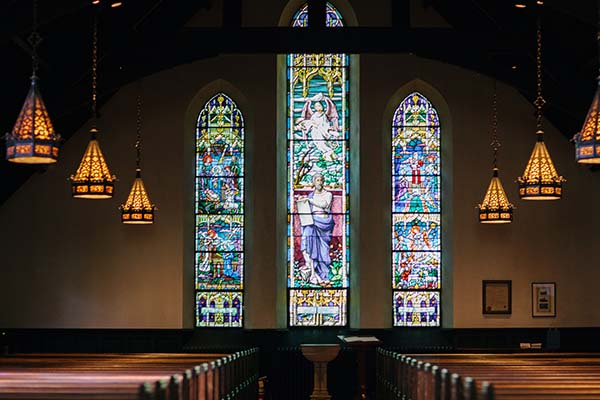Rather than map out what a church leadership structure ought to be like, the New Testament talks more about the roles of people -specifically, elders and deacons. Because elders are stated in the Bible, a Church must have them. But what are church elders? What do they do?
What Are Church Elders
Reading through the Old Testament, we can see that elders frequently sounded to be ruling figures in towns and cities, for illustration, Ruth 42. These elders were men of character, integrity, proven character, wisdom, and life experience. They performed the part of adjudicators, interceding and deciding marketable and maybe legal cases. This is important foundational knowledge to ensure our understanding of New Testament elder-ship is sound.
With the Exile, the Jews were no longer suitable to worship and immolate at the Temple because they were no longer in proximity to it. Indeed if they had been, the Babylonians had destroyed it. The synagogue came about during this time. Jews would gather to study the scriptures and pray. This practice seems to have continued historically and now forms the bedrock of numerous of our typical Sunday morning services.
Dr. William H Marty, in ‘The World of Jesus ’, explains that the common practice was that any community with ten Jewish males could organize a synagogue. Each synagogue was governed by a council of elders, and would also have a ‘ head elder ’. It served as the spiritual, artistic, social, and educational hub of the community, so the elders were the guardians and overseers of the traditions and spiritual health of the community.
What Are Church Elders’ Responsibilities
Elders’ responsibilities include guiding the church by:
- Discerning, setting, and following the vision and direction of the church
- Leading by illustration in faith and conduct
- Bringing fatherly/ maternal direction
- Teaching truth, whether sermonizing intimately or tutoring in lower or informal settings whether to groups or to individuals
Their responsibilities also include guarding the church by:
- Guarding people against false teaching
- Dealing with negative influences, whether they’re internal or external
- Bringing applicable admonishing, rebuking, and challenges where necessary
Their responsibilities also include governing the church by:
- Setting and growing culture
- Making crucial strategic decisions
- Managing people, programs, and resources
What Are Church Elders’ Qualifications
We can see that implicit church elders show such qualifications as:
- God has called them to eldership!
- They actually want to do it!
- Eldership is a significant calling, and not a commodity you ‘ pick up and try out ’. Short-term or temporary eldership isn’t a biblical conception or wise idea.
- It’s more about ‘ who you are ’ than ‘ what you do ’.
- They must be considered by the church as a mature religionist among them
- They’ll need to be accepted by the other elders as someone who’s admired and heeded to
- The job is people; they must love the church people, as they will be a shepherd to them
- They need to have the heart of a servant, willing to go low and get their hands dirty. Elders don’t just talk or direct, but they get stuck in and wash their feet.
- They need to be a good illustration of their own life, faith, and family. Healthy and godly marriage and family life are essential!
- They mustn’t do it for self-advancement, but to bless the church. It’s a serving role.
You Should Know About Church Elders
Elders Are Shepherds.
Both the Old and New Testaments constantly employ the conceit of” tutoring” to describe the spiritual leadership of God’s people. Not unexpectedly, the New Testament views elders as shepherds as well(e.g. Acts 2028; 1 Peter 51-4). The elders’ charge is to lead, educate, protect and love their church members the way goatherds watch for the sheep in a flock so that the church members will grow up into spiritual maturity( Ephesians 411-13).
Elders Are Pastors.
This alternate point restates the first, but it bears repeating. The word” pastor” means” shepherd.” We frequently call paid priests” pastors” and lay leaders” elders.” This distinction can subtly shape our thinking so that we view pastors as the professional ministers and elders as the church’s board of directors who support the ministers. But a pastor is an elder, and an elder is a pastor. Elders should do those effects in a local church that they assume a pastor would do, indeed if they spend smaller hours per week than the paid pastor.

Elders Are Plural.
We always find elders( plural) in New Testament churches(e.g. Acts 154; 2017; Titus 15). Each congregation should have a team of shepherds.
Elders Must Be Godly.
The New Testament job descriptions for elders concentrate largely on character qualities(e.g. 1 Timothy 31-7; Titus 15-9). Elders must be self-controlled, sensible, holy, and sociable. They can not be allies or bullies or money-grubbers. Elders must be” above reproach.”
Elders Should Model Godliness.
The elders’ character matters because the elders model Christian maturity for the church( 1 Peter 53 Hebrews 137). Church members should be suitable to see in their elders inspiring, albeit amiss, exemplifications of the character of Jesus.
Elders Should Teach.
Elders must be suitable to teach( 1 Timothy 32) so that they can make up the church in sound doctrine and refute false preceptors( Titus 19cf. Acts 2030-31). Elder teaching can take lots of shapes one-to-one instruction, small groups, classes, or sermonizing. An elder does not need a Ph.D. in biblical studies, but he does need to be able to faithfully explain biblical verity.
Elders Must Lead.
Elders have a measure of authority over the original church. That is why the New Testament also calls them” overseers.” The elders’ authority isn’t absolute or irrefutable, nor should it be exercised in a domineering manner. Yet God calls his shepherds to give leadership for the flock, and, in general, God expects the church to submit to that leadership
Elder Leadership Starts At Home.
Still, an elder should be” a one-woman man”( 1 Timothy 32; Titus 16), which at the veritably least means that he’s a faithful hubby if married. However, he must parent them well so they are not out of control( 1 Timothy 34) if he has children. You should demonstrate suitable leadership of your own household before you presume to lead God’s Household.
Elders must be men.
Male-only eldership is a hotly contested issue. And yet the Bible seems extremely straight-forward; an elder must be a” one-woman man.” Just as God calls men to be the heads of their homes, so he calls faithful men to lead his church.
Elders Aren’t Jesus.
Jesus is the Chief Shepherd, and elders are simply his temporary aides( 1 Peter 54). At their stylish, elders model Jesus’ character, teach Jesus’ word and lead the church by pointing it toward Jesus and his mission. Good elders never lose that awareness that they themselves are still lambs, utterly dependent on the grace of the Good Shepherd.



